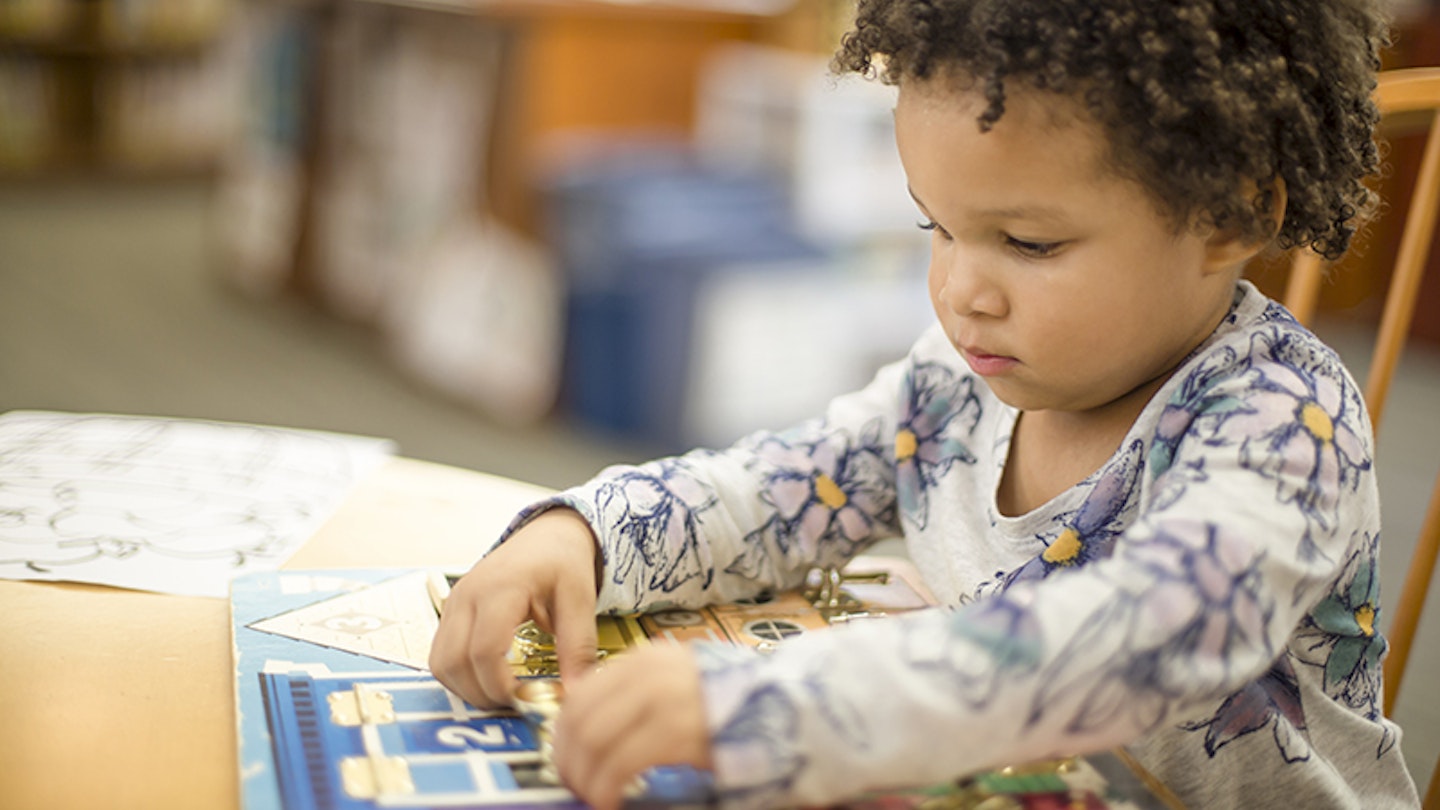Your child’s brain develops more in the first three years of their life than at any other time, but you can put away the calculus books and Jane Eyre. It turns out the most important way you can help your little one with this huge development is through play. Yep, that’s right, just the act of playing with your baby or toddler can have a huge impact on how their brain develops during these early years.
But how do you play with a baby or toddler? When you have a busy life and are perhaps juggling their needs with those of their siblings, it can be tricky to find time for play. We’ve spoken with child development experts to get their toddler play ideas and tips on how you can play with your baby or toddler and rounded up some of our favourite ways to fit play into our busy lives.
Why is play important?
It might appear to be all fun and games, but play is actually the best way for children to learn. Not only can they learn numbers and letters through games like the Orchard Games Number Street, but playing helps children learn how to build relationships with others, develop communication skills, and make sense of the world around them in a safe and secure way. According to the UN, 71% of children say play is important because it makes them happy, and 58% say that it helps them make friends and have a good time with others.
"Play is crucial for toddlers as it supports their whole development. Through play, toddlers develop social skills, communication abilities, physical and cognitive abilities" says Dr Amanda Gummer from The Good Play Guide. "It helps them understand their world, fosters creativity, and enhances problem-solving skills. Engaging in play allows toddlers to practice autonomy and decision-making, which are essential for their growth and learning."
In schools, play-based learning has been shown to engage children more actively in the learning process – and even as adults we’re more likely to engage in work if it’s something we enjoy.
But when it comes to playing, we’re doing less of it than ever before. In fact, the International Day of Play Network found that "97% of us believe play is important yet one in three of us do not have the time to play."
So how do you play with your toddler? We’ve spoken to child development experts and parents to find tried and tested toddler play ideas that not only keep them entertained but help their development in those early years.
Outside play ideas
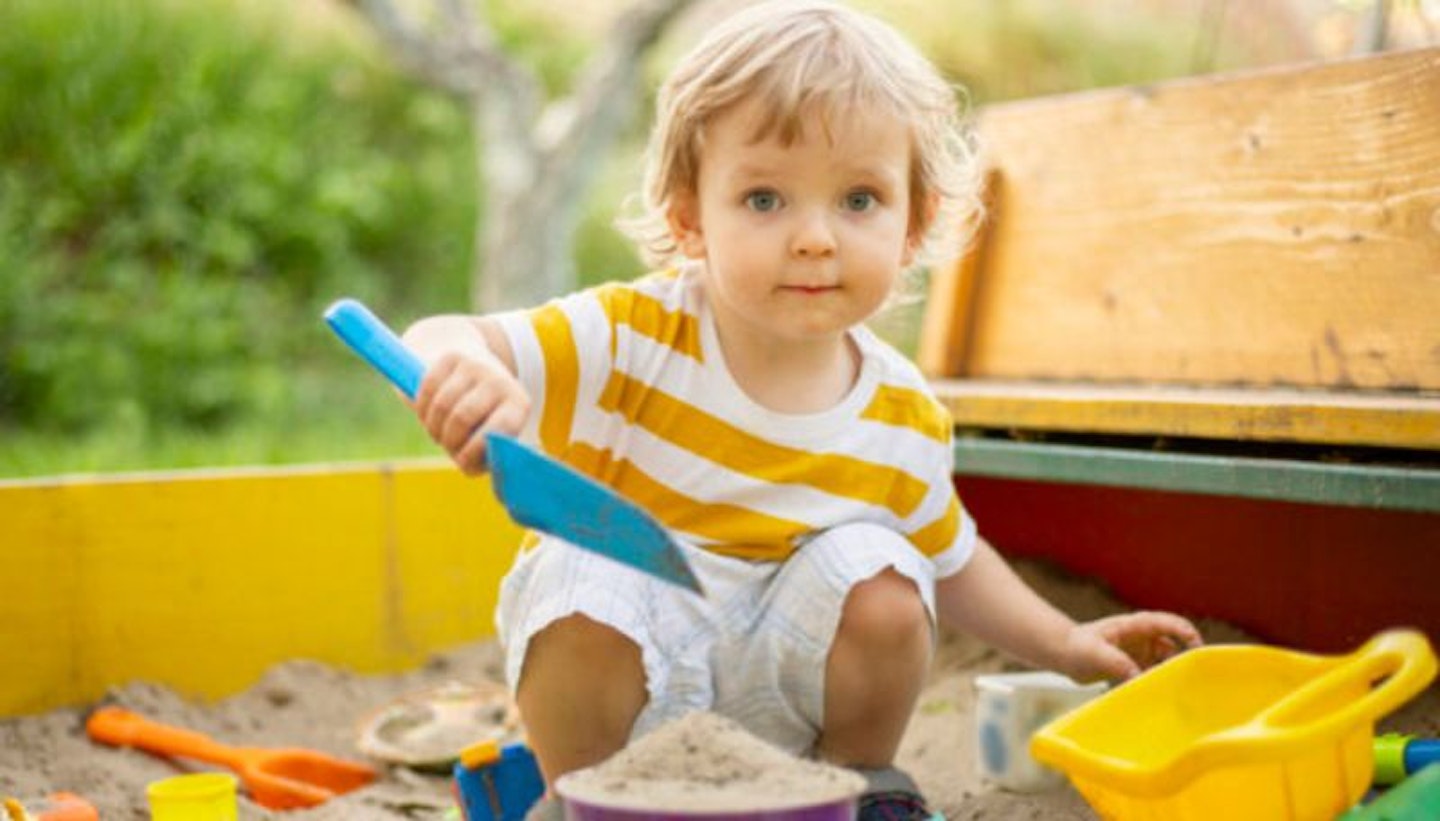
Outdoor toddler activities are vital in a child's healthy development, allowing them fresh air and space, but as Georgina Sturmer argues, it offers far more benefits than just exercise. "Playing outside requires us to engage all of our senses. As we experience the outdoor world, nature and fresh air, it can calm our nervous system or lift our mood, reminding us to retain perspective over any stresses or worries." It's no surprise then that toy experts at The Entertainer found that gardening tools for kids and fishing rods were in their top 20 trending toys for 2024.
Additionally, Georgina explains how outdoor play can introduce children to risk-taking while inspiring creativity. “Outdoor play often incorporates elements of careful risk-taking. Seeing if we can jump high enough, reach far enough, balance well enough. This is a natural way for children to develop their confidence and self-esteem. They learn to attempt new things, to experience setbacks and to challenge themselves to keep trying something new."
Nature-based play ideas
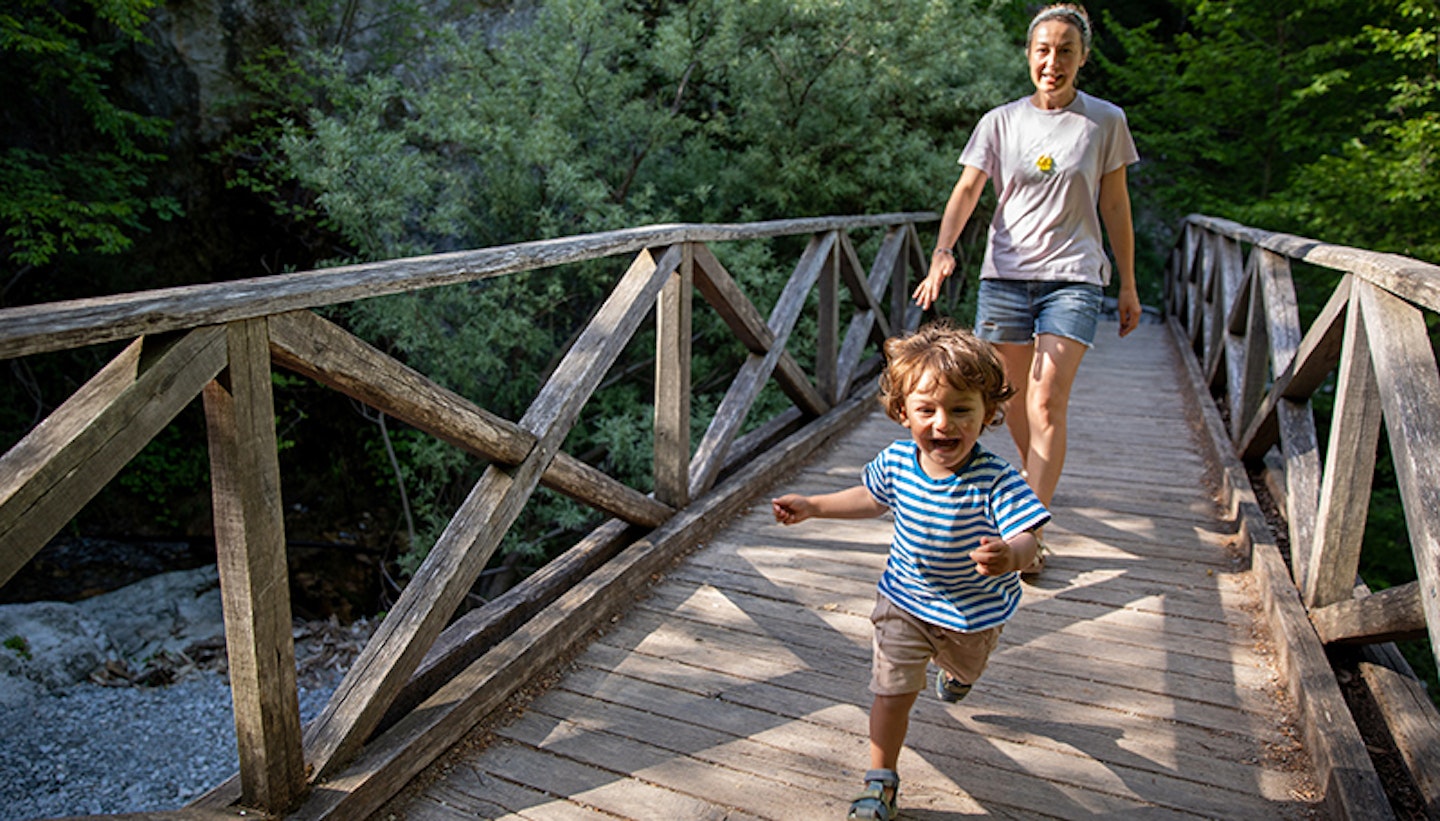
Playing outdoors can also let children learn about the world around them through nature. Whether you've got a garden, a balcony, or a nearby park, there's plenty of fun and creative garden activities for kids. Grab a paintbrush and some water and unleash their inner Picasso on the wall (bonus points if they're cleaning it at the same time!), take a handful of seeds and pop them in pots to get toddlers involved in growing their own flowers, or get them to help tidy up the garden by making a bug hotel from bits of tree bark, old pots and sticks. While it's bound to be fun for them - and possibly a bit messy - it will also engage them with nature and let them learn about it through play.
Messy play ideas for toddlers
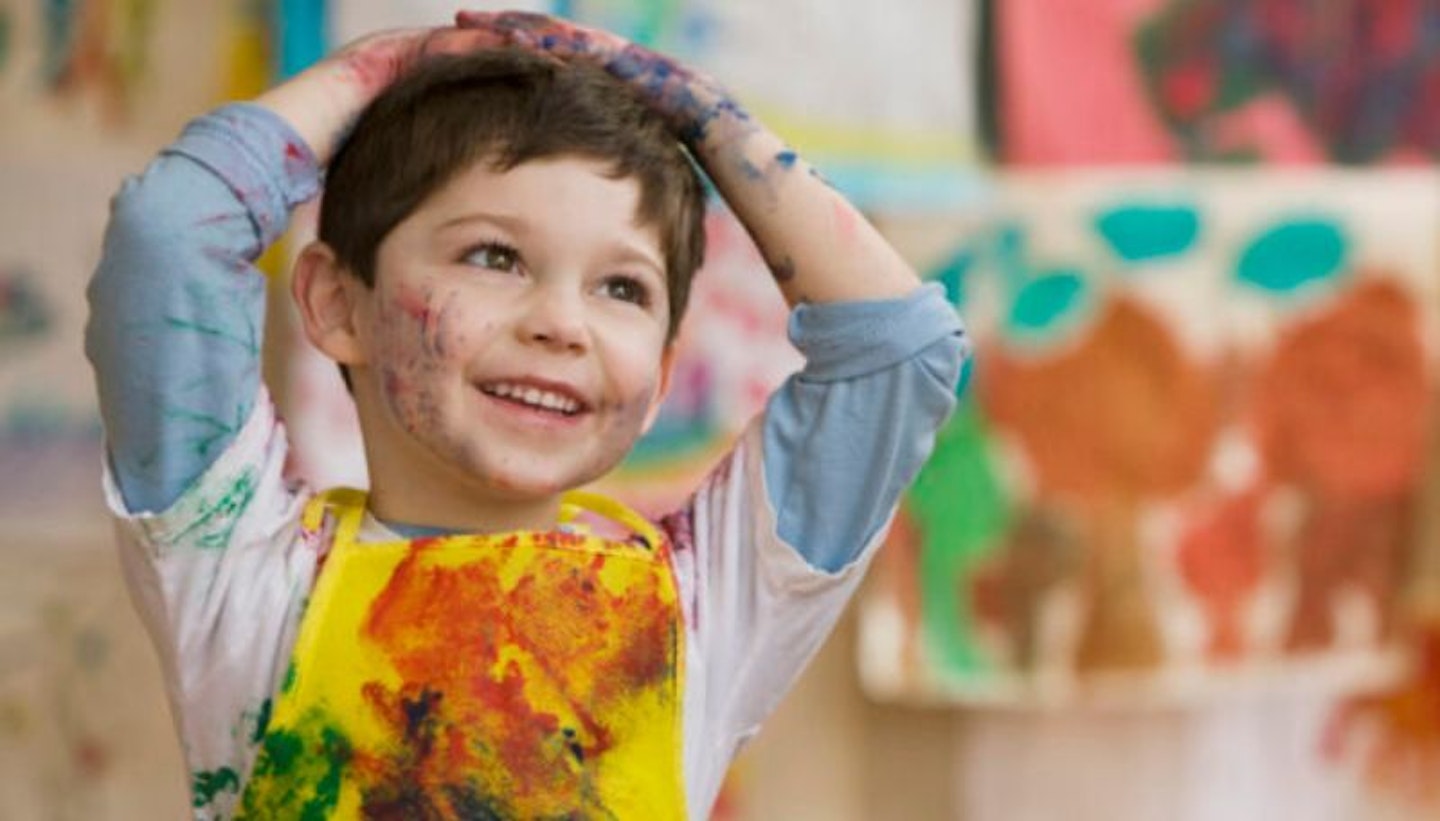
While the clear-up at the end might not make your life easier, setting your kids up with a messy play station can be a great way to let them explore sensory play and have a lot of fun! You might want to keep the mess contained in a tuff tray to minimise the cleaning up afterwards but messy play can help toddlers with fine motor skills, problem solving, and even their language skills. With our messy play ideas for babies and toddlers you can create magical sensory activities with your tot, including jelly play-doh, cloud fluff, and window paint!
Imaginative play ideas
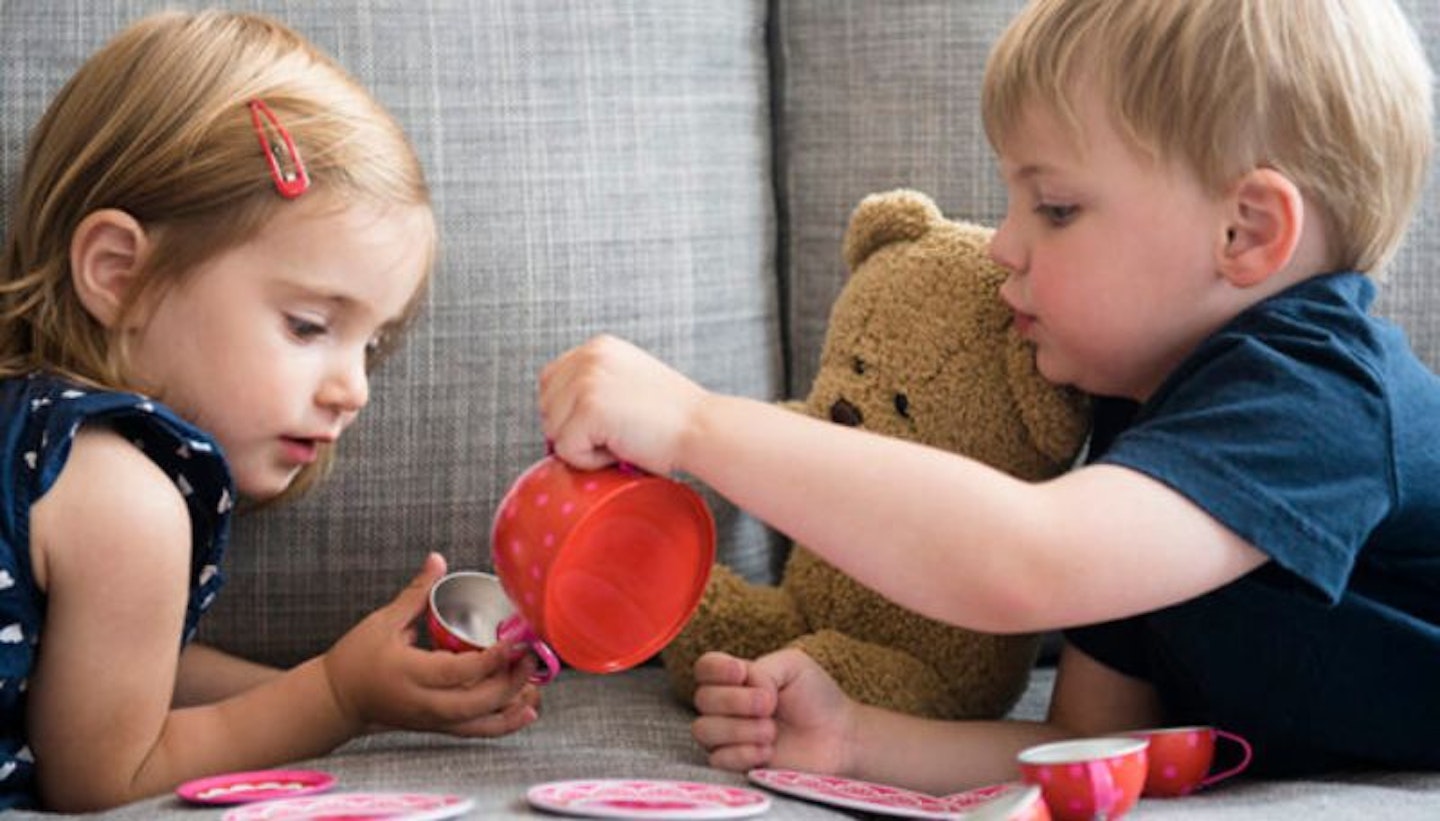
Imaginative play and role play helps toddlers to develop their social and language skills, boost creativity and problem-solving skills and encourages emotional development - who would have thought that pretending to host a tea party for their toys could have such a huge impact on their development!
Imaginative play ideas include tea parties, setting up a shop with whatever they can find in your cupboards, or building a den out of the sofa. You can do this with whatever you have around the house, but role play toys for two years olds add an extra dose of realism, whether they're playing at being a barber or cooking up a storm in the kitchen. Top tip? If you've run out of energy, why not let them make you a (pretend) cup of tea while you have a sit down, or let them nurse you back to health as you have a little lie-down on the sofa.
Sensory play ideas

When it comes to playing with babies, sensory play is key. "Sensory play for babies is excellent as it helps them explore and make sense of the world around them" Dr Gummer told us. This means activities that stimulate their senses—such as touching different textures, hearing various sounds, and seeing bright colours, which she suggests can "enhance their cognitive development, fine and gross motor skills, and language abilities." As with so many toddler and baby play ideas, the benefits go beyond this and help every element of a baby's development. "Sensory play also supports social interaction and emotional growth by allowing babies to express themselves and engage with their environment." says Dr Gummer.
If your baby is sitting, a saucepan and wooden spoon could be all they need to make music, but if they're younger then singing lullabies and rocking them can provide a wonderful bonding experience as well as a sensory experience. Sensory play for babies can be as simple as crinkling some paper, turning on fairy lights, or making a sensory bottle.
You can get even more imaginative with toddler sensory play ideas, whether creating rainbow noodles, chopping up some fruits to explore flavours, making scented play-doh or stomping on bubble wrap.
How many hours a day should I play with my baby?
While it's beneficial to spend quality playtime with your baby, it's equally important for them to have independent playtime and interact with others. Dr Gummer notes that "engaging with your child for short periods several times a day, such as 10-15 minutes each session, can be very effective." But she also suggests that playful interactions are just as beneficial as pure play. "Also engage playfully with them throughout the day, whether it’s during meal times, or getting dressed, bathing or even changing nappies. This balance allows them to develop independence while still enjoying the benefits of interactive play with you."
How many hours a day should I play with my 2-year-old?
While there isn't a strict number of hours, Dr Gummer notes that "toddlers should have ample opportunities for free play throughout the day." Play should take in many of the types of play mentioned above, for instance, imaginative, nature-based, sensory etc. "It is recommended that toddlers engage in various forms of play, including active, social, imaginative, and free play, to support their holistic development" says Dr Gummer, going on to say that "ensuring they have time for both structured and unstructured play is key."
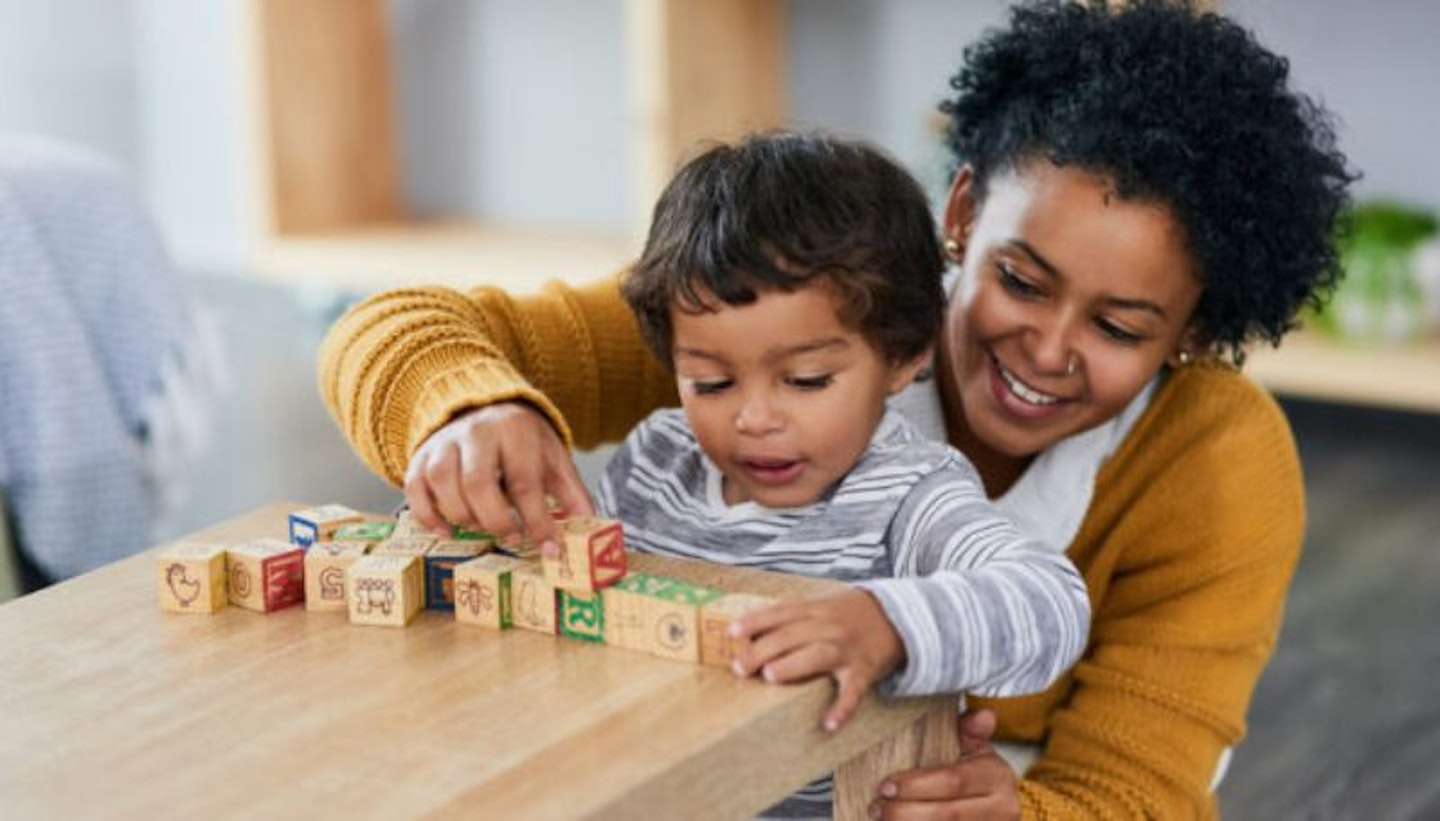
Should I feel bad if I don't enjoy playing with my toddler all the time?
In a word, no. As an adult, playtime can be a struggle, especially if you have a lot on your plate. And playing doesn’t come naturally to everyone. I’d be the first to admit that I was often a reluctant play-partner to my toddlers. When you’re sleep-deprived and have a to-do list as long as your arm, it can be hard to motivate yourself to play. In an article on Psychology Today, Dr Lawrence Cohen, author of Playful Parenting, argues that we need to practise self-kindness. “If playfulness is alive in you, then play! If you aren't 100 percent into it, but you can manage a bit of playfulness with a stretch, then give yourself a gentle push to take that stretch. However, if other strong feelings are there instead of a desire to play, acknowledge these feelings to yourself. Practise some self-kindness about being sad, tired, or anxious.” The saying is true – ‘you can’t pour from an empty cup’ so try to recharge your batteries and hopefully return to play with more enthusiasm.
Dr Gummer agrees. "It's normal not to enjoy playing with your toddler all the time, and feeling guilty or bad about it doesn't help anyone. Remember, even brief moments of engaged play can be very meaningful for your child's development. If you’re looking after your own needs, you are more likely to feel more playful and have more energy to play positively with your child so don’t make playtime a chore. Making sure your child has opportunities to interact playfully with other people is also important."
Make play part of your day
You can also build play into your own day and around things you enjoy. If you find it tricky to fit play into your day, or just can't face another board game, Dr Gummer suggest finding activities that you both might find engaging. "Focus on what interests your child and find ways to integrate your interests too." Play doesn't have to be games or role playing. "For example, if you enjoy music, you can have a dance party. If you like being outdoors, go for a walk or play a simple game in the garden. Remember, it's about the quality of the interaction rather than the activity itself." Even daily chores like doing the washing can become interactive play if you talk to your tot throughout, explaining what you're doing and perhaps making it a bit more fun by making a den out of the washing line.
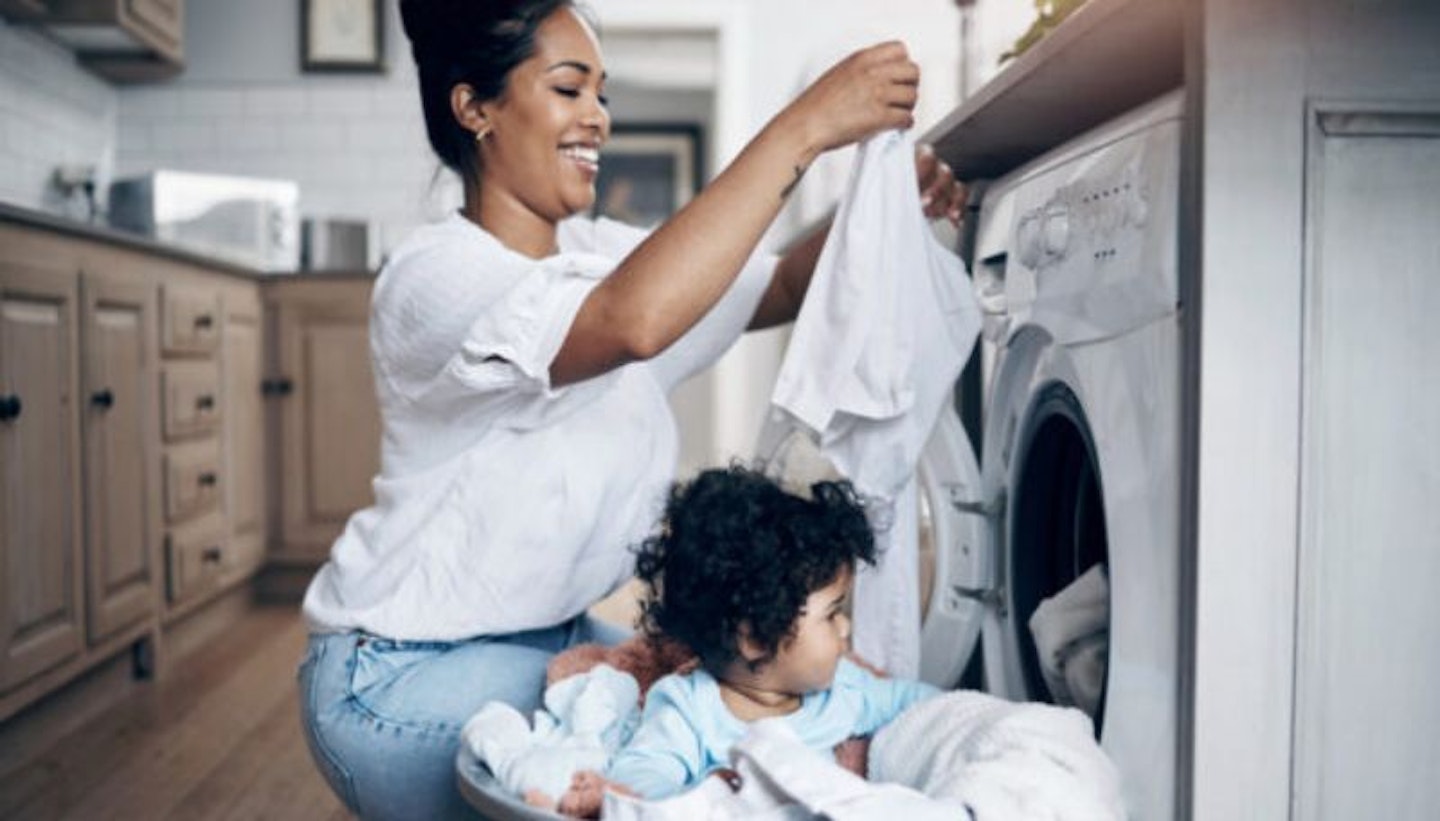
The benefits of independent play
The good news is, there’s no need to beat yourself up if you find it tough to play all the time; although it is important to make time to play, it’s also important to nurture your child’s ability to play independently. Dr Gummer notes that “a child that can play independently is able to embrace their imagination to the full. Without an adult there to guide them, they are reliant on their own mind to create magical adventures and artistic masterpieces.” While we don’t want these artistic masterpieces to be created on our walls, there’s something to be said for setting your little one up with a messy play station or tuff tray and letting them create chaos (sorry, an artistic masterpiece!).
Equally, while children learn from us, it’s also important that they learn to solve problems themselves, whether that’s negotiating shared time on a toy with a peer or rebuilding a fallen stack of bricks. Dr Gummer find this early problem-solving has benefits in later life. “This helps to boost self-esteem and confidence in even the shyest of children, leading to positive developments in the areas of social interactions. They are more open to embracing a conversation with their peers and these are skills that they take into adulthood,” she says.
Play can be good for parents too
Though we tend to focus on the benefits of play for children, it can also be good for parents. Anita Cleare, parenting expert, co-founder of the Positive Parenting Project and author of the The Work/Parent Switch, suggests that “play is the epitome of mindfulness – being 100% in the moment and just going with the flow.” Not only can it relieve stress, but playing with your child can help build a strong relationship between the two of you. As Anita says “Playfulness requires you to tune in to your play partner, to read their mood and intentions. It requires trust and creates a better understanding of each other. And that stronger relationship helps make the stickier moments of parenting (like enforcing boundaries) a lot easier.”
So next time your tot says ‘Mummy, can you play?’, take these ideas and channel your inner child, remembering that it’s good for your kid, and good for you!
About the experts
Dr Amanda Gummer is a child development expert who founded The Good Play Guide in 2012. Amanda has a PhD in Neuropsychology, the Postgraduate Certificate in Higher Education and over 20 years’ experience working with children and families. Having worked in children’s industries for many years, Amanda is now widely considered as the UK’s go-to expert on play, toys and child development.
Anita Cleare MA AdvDip is a parenting speaker, writer and coach who supports working parents to balance successful careers with being a parent. With an academic background in developmental psychology, Anita has a talent for helping parents to step back and reflect on parent-child dynamics and implement small changes that make a huge difference. An accredited Triple P® parenting facilitator, Anita has been working in family support for 20 years.
Georgina Sturmer is a Counsellor and Registered Member of the British Association for Counselling and Psychotherapy. In her private practice she specialises in supporting women through anxiety, depression, relationship difficulties, pregnancy, fertility, miscarriage, postnatal depression, domestic abuse, trauma, and loss. She also worked and volunteered for the charity Home-Start for a number of years, as a home-visitor, a counsellor and as a trustee. She is passionate about offering parents the support that they need to be the best version of themselves.
Rebecca Lancaster is a Digital Writer for Mother&Baby, drawing on ten years of parenting her two children to help others navigating their own parenting journey. As a freelance writer, she spent ten years working with leading lifestyle brands, from travel companies to food and drink start-ups, and writing everything from hotel reviews to guides to the best British cheeses. She’s particularly interested in travel and introducing her children to the excitement of visiting new places, trying different foods (less successfully) and experiencing different cultures.
